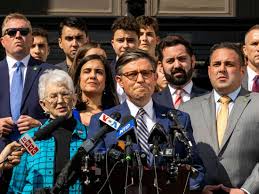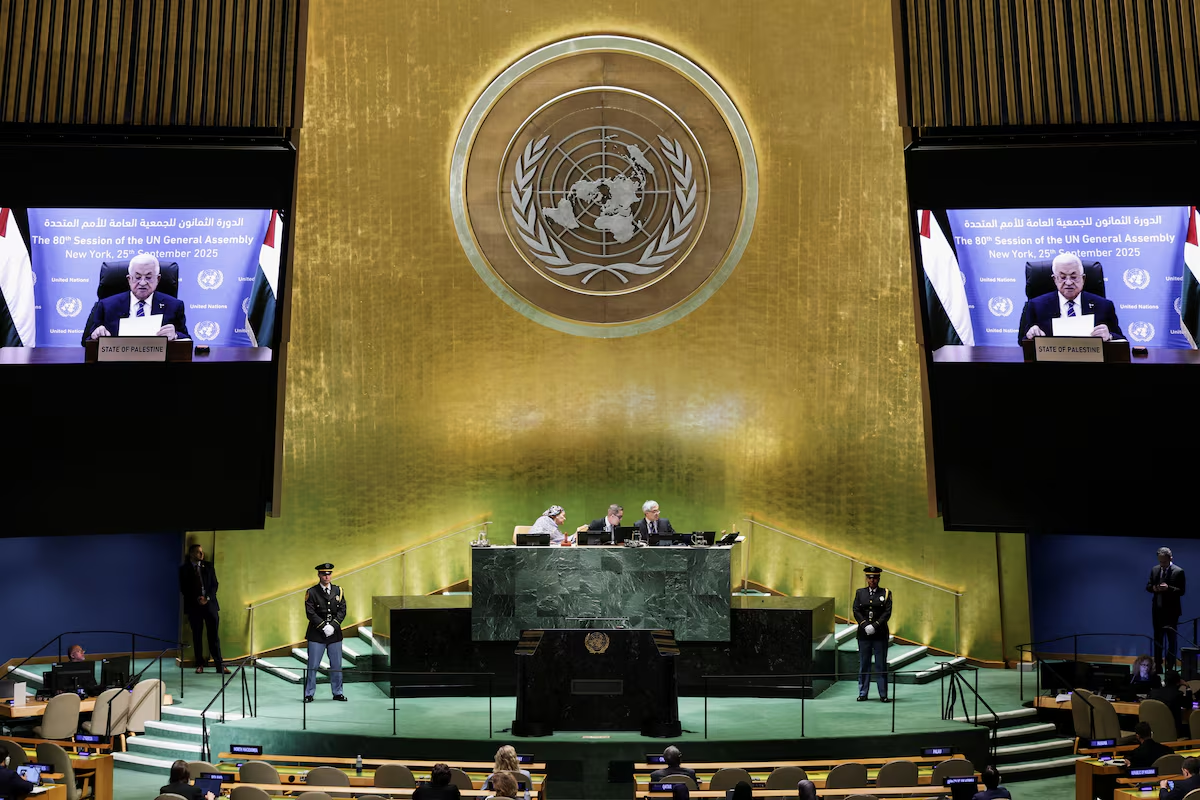On May 1, the United States House of Representatives passed a new bill, causing the entire country to question its stance on free speech vs. violence.
Where does one draw the line on free speech? How far does one’s right to protest extend? These questions are dominating the current political sphere of Congress. The following actions of the Senate and President Joe Biden are essential in determining the future of protesters, especially the pro-Palestinian protesters seen on college campus around the U.S. today.
H.R. 6090 is officially titled the “Antisemitism Awareness Act of 2023” (hereinafter referred to as “the act.”) The act draws upon several previous precedents, including the Civil Rights Act of 1964.
Although vital for nondiscriminatory actions at the time, Congress agreed that the law should extend to discrimination based on religion, ancestry and ethnic characteristics. The act goes on to explain how it is critical to improve safety for Jewish communities, increase awareness for antisemitism and expand collaboration between different communities.
In the findings section of the act, Congress finds that, “Antisemitism is on the rise in the United States and is impacting Jewish students in K–12 schools, colleges and universities.” The act goes on to explain that the White House released an official strategy to counter antisemitism in May 2023. This strategy released by Democratic President Joe Biden solidifies the idea that antisemitic hate is a national and bipartisan issue — spanning from both spectrums of the political scale.
Mike Johnson, the current Speaker of the House, remains a forefront figure in the advocacy of this act. Johnson visited Columbia University amid the protests to speak with Jewish students on campus — many of whom have concerns over their safety on campus. He was met with boos upon his arrival on campus.
“A growing number of students have chanted in support of terrorists. They have chased down Jewish students. They have mocked them and they reviled them. They have shouted racial epithets. They have screamed at those who bear the Star of David,” Johnson said.
At the meeting, Johnson spoke with Jewish Columbia students and heard about their experiences on campus first-hand. Several of them urged Johnson to speak to President Joe Biden to take a tougher stance on the matter. New York Congressman Anthony D’Esposito also joined Johnson on the trip. He shared his discontent with the Columbia administration and felt that students’ safety is at risk.
“They are really concerned that their voices are not being heard when they make complaints about, again, being assaulted, being spit on, being told that all Jews should die. And they are not getting any response from the individuals who are literally being paid to protect them,” D’Esposito shared.
Despite staunch supporters, the bill also drew a lot of criticism due to concerns over limitations on free speech. Those in opposition argue that criticism of the Israeli government does not equate to antisemitism. If the bill is passed, the definition of antisemitism would be in a much broader scope, therefore leaving many to worry about suppression of free speech on college campuses.
“Speech that is critical of Israel alone does not constitute unlawful discrimination. By encompassing purely political speech about Israel into Title VI’s ambit, the bill sweeps too broadly,” Representative Jerry Nadler said.
The American Civil Liberties Union (ACLU) also spoke out against the bill, arguing again that the bill would censor political free speech that is critical of Israel. The ACLU strongly condemned the bill, hinging on the point that First Amendment protections are guaranteed by law to pro-Palestine protesters.
“The House’s approval of this misguided and harmful bill is a direct attack on the First Amendment. Addressing rising antisemitism is critically important, but sacrificing American’s free speech rights is not the way to solve that problem,” Christopher Anders, director of ACLU’s Democracy and Technology Policy Division, said.
The ACLU also pointed out that there are various laws that already prohibit antisemitism, and that the Antisemitism Awareness Act is not needed for further protection from discrimination. The Supreme Court also established a precedent in Healy v. James (1972) — a landmark case that emphasized the difference between freedom to protest and freedom to disrupt. According to the ACLU, there are several federal laws and legal precedents that are already in place. Therefore, an additional act that blurs the line between criticisms of Israel and antisemitism is not needed.
This bill has to still face the Senate floor — held by a majority of Democrats. After Senate approval, President Joe Biden must also weigh in. This decision by Biden could cost him the Generation Z vote.
“Let me be clear. Violent protest is not protected. Peaceful protest is. It’s against the law when violence occurs. Destroying property is not a peaceful protest — it’s against the law. Vandalism, trespassing, breaking windows, shutting down campuses, forcing the cancellation of classes and graduations, none of this is a peaceful protest,” Biden said in a remark on May 2.
The pro-Palestinian demographic of young college voters is vital for him to prevail. Could signing this bill into action cost him the election?










Michael Abbott, BA • May 13, 2024 at 11:11 AM
President Biden clarified that America stands with Israel against Hamas.